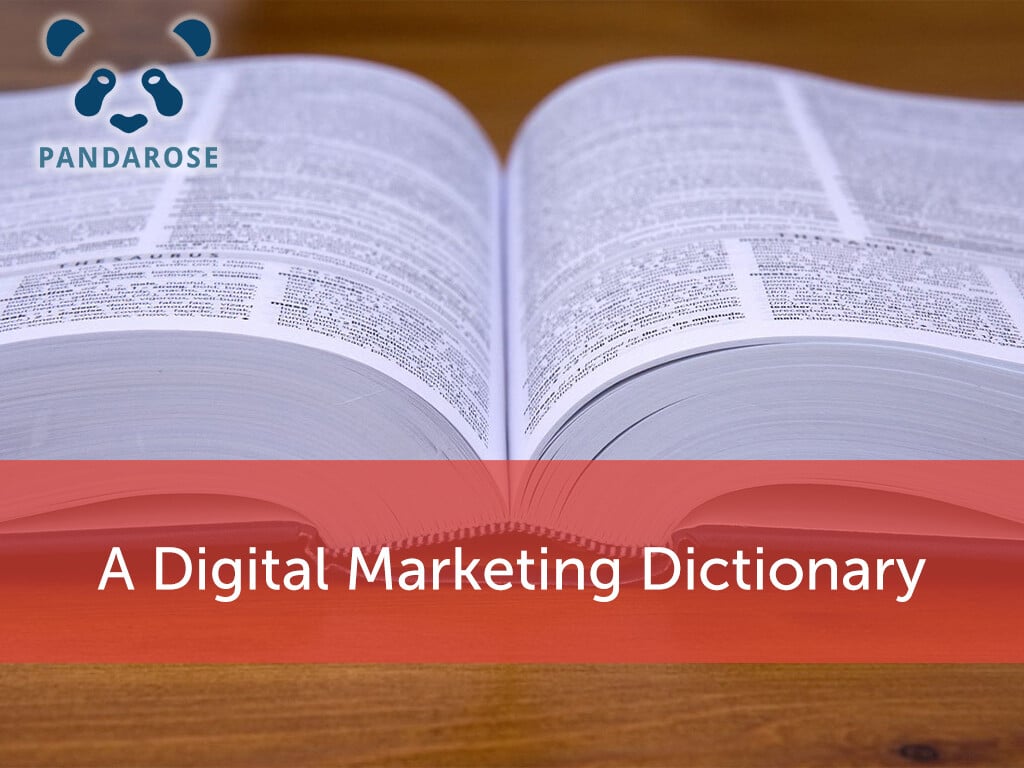One of the most confusing parts of working with a digital marketing company is understanding what in the world they’re telling you. It ends up sounding like they’re telling you to reverse the polarity of the neutron flow.
Or in the words of the great John Cleese, “The scransoms above your head are now ready to flange. Please unfasten your safety belts and press the emergency photoscamps on the back of the seats behind you.”
The Panda Rose Digital Marketing Dictionary
To that end, I’ve compiled a short list of 13 of the most common digital marketing words. Hopefully it helps you make sense about what the marketing experts are telling you.
Backlink
A link from someone else’s website to yours. If it’s a reputable website this link will increase your search result rankings.
Bounce Rate
The percentage of people viewing your website who leave after only seeing one page.
Conversion
Someone who performs an action as a result of viewing your website or ad. Such as signing up for a mailing list, taking a survey, buying a product, etc.
CTR
Click-through rate. The percentage of people who see your site somewhere (usually search engines) that actually click through to your website.
Follow/No Follow
Whether or not search engines will follow a backlink to your website, thus boosting your rankings.
Keyword
A word or phrase that internet users search for on search engines. The more specific the term, the more valuable it is since people searching for something specific are more likely to click through to relevant sites.
Remarketing
Advertising that targets people who have already interacted with your website.
Schema
A way of telling search engines what all the content on your website is. Such as the title, author, and/or ratings and reviews of your website or products.
SEO
Search Engine Optimization. In other words, ensuring that Google and other search sites
SERPS
Search engine results pages. This is where the results for a search show up. Ranking higher on a SERP means that you show further up on the results page.
Sitemap
A file that lists all of the urls for a site. Search engines can read these to find urls they wouldn’t otherwise know about.
Tags
Tags can refer to two different things. In blogging it refers primarily to relevant words or phrases to your article so that people interested in those things can find similar blog posts. In SEO it refers to things like the title of your page, metadescriptions, headings, alt-text, no-follow tags, etc. Don’t worry if you don’t know what those are. Part 2 of this series will have a lot of the most common tags in it.
Web Directory
A website that provides lists of other websites. Most directories require manual submissions of entries and usually include more details like contact information. They are the easiest way to build up backlinks.
